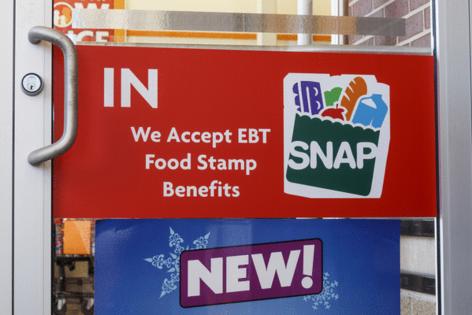Audit finds $83M in delayed food aid, flags 7 NC counties for late payments
Published in News & Features
Roughly $83 million in federally funded food benefits for low-income children and families in North Carolina were delivered late, according to an audit released Wednesday.
The Office of the State Auditor, led by Dave Boliek, found that more than 290,000 Supplemental Nutrition Assistance Program payments were not issued within the federally required time frame.
The late payments took place from 2021 to 2024, as North Carolina processed about 3.7 million SNAP applications and paid out roughly $15.7 billion in food assistance benefits.
According to the audit, 98% of benefit payments were made on time in 2021, but that rate dropped to 91% between 2022 and 2024, falling below the federal timeliness standard of 95%.
And millions of people live in counties, like Wake and Mecklenburg, that issued 20 to 25% of payments late, the audit says.
The delayed payment rates in the audit are based on the number of SNAP applications processed late, and not the dollar value.
“The State Auditor’s Office is committed to holding government accountable for being efficient. In this case, despite repeatedly seeing there were delays in the distribution of SNAP benefits, DHHS chose not to enforce corrective actions,” Boliek said in a news release. “It is troubling that DHHS leadership doesn’t believe tracking untimely benefit amounts would improve efficiency. Measuring performance provides transparency and results on the spending of taxpayer dollars.”
About 13% of North Carolinians rely on SNAP benefits. The North Carolina Department of Health and Human Services told The N&O in an email that 1.4 million people in the state reply on SNAP “to help put nutritious and healthy food on the table. More than 700,000 households receive benefits each month and 4 in 5 families participating in SNAP in North Carolina have either a child, senior or an adult with a disability.”
DHHS noted that the $83 million in late payments represents only about 0.5% of benefits.
DHHS also provided a response in the audit in which it said it accepted the finding that SNAP benefit payments were not always made on time.
The food assistance program has already been under scrutiny.
It will face reductions under the “One Big Beautiful Bill” backed by President Donald Trump, which became law in July.
The law will require North Carolina to begin sharing more of the cost of administering the program, and to begin paying a portion of costs for SNAP benefits, which were previously covered 100% by the federal government. The change stems largely from a penalty tied to the state’s payment error rate and will take effect in fiscal year 2028, The News & Observer previously reported.
Seven counties
The audit identified the seven counties with the highest rates of late payments in 2022, 2023 and 2024.
In North Carolina, DHHS’ Division of Child and Family Well-Being oversees the federally funded SNAP program, but it is administered locally by county social services offices.
Here are the lowest-performing counties:
—Davidson County: 24.9%
—Edgecombe County: 22.2%
—Wake County: 22.0%
—Mecklenburg County: 21.2%
—Pitt County: 19.6%
—Cumberland County: 14.4%
—Stanly County: 14.2%
Federal law requires that all eligible households receive SNAP benefits within 30 days of applying, or within seven days for those eligible for expedited service.
The audit says that DHHS chose not to enforce corrective actions for county offices that repeatedly failed to meet timelines.
Corrective action plans help counties develop strategies to improve performance.
Auditors identified three main reasons for the delays: a surge in applications after food prices rose and federal pandemic-era rules expired that had allowed families to keep receiving SNAP benefits without reapplying; DHHS’ failure to enforce corrective actions; and widespread staffing shortages at county social services offices that slowed processing.
The report recommended that DHHS strengthen oversight of county SNAP operations, enforce corrective actions, study practices from high-performing counties, and collect better data on how late benefits are paid to target resources where delays are most severe.
DHHS said in its response that while it did not formally take corrective actions, it was actively engaged in oversight. It also said that after reviewing the recommendations, it determined its current systems would allow it to monitor and track the degree of untimeliness and that it plans to do so. However, DHHS added that SNAP delays are often caused by eligibility verification requirements and changes in household circumstances.
While DHHS tracks whether SNAP payments are issued on time, it does not measure how late delayed payments are, the report says.
_____
©2025 Raleigh News & Observer. Visit newsobserver.com. Distributed by Tribune Content Agency, LLC.







Comments